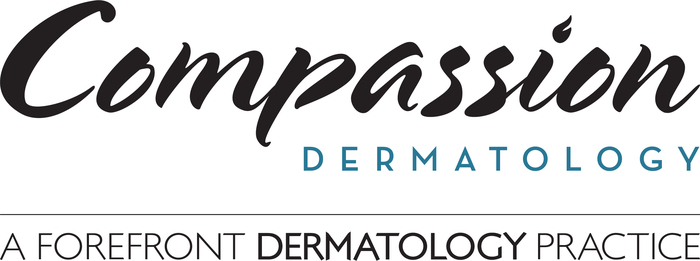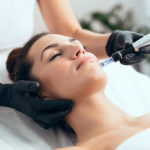
Photo by goffkein.pro at Shutterstock
Cosmetic procedures are popular in the area for many reasons. Some people want to look their best to improve self-esteem. A cosmetic procedure can even improve quality of life, especially when it provides help and comfort to people after traumatic experiences. Dermatology professionals also consider health and safety as the most important aspects of any procedure or treatment.
A wide range of products and treatments fall under the category of cosmetic injectables. Dermal fillers add volume and create facial contours. Neuromodulators, such as Botox, relax muscles in the face to smooth wrinkles. Cosmetic injectables should always be handled by a dermatologist. Amateur and DIY cosmetic injectables are dangerous.
Counterfeit Products and Unskilled Injections
Unregulated injectables are usually not FDA-approved substances and may even contain something very different than their labels claim. Counterfeit products are very common. Many counterfeits come from Asia and certain parts of Eastern Europe. Some counterfeit products from Asia have been examined and identified as viper venom.
Injectable fillers should be thought of as medical procedures. Our faces contain hundreds of blood vessels, over 30 muscles, and thousands of nerves. Dermatologists are doctors. They attend medical school and have years of education and practical experience before licensing. Injectables are safe when they’re administered by qualified dermatology clinicians. No one without the appropriate knowledge and training can safely perform an injectable procedure or any other type of invasive procedure.
Potential Adverse Effects
The most immediately noticeable effect of fake products or unskilled injection may be a lack of results. A procedure will not have the desired effect if it’s performed incorrectly using fake products. Disappointing results are often the best case scenario in such situations.
Illegal injectables have caused many severe adverse effects, such as infection, allergic reactions, disfigurement, blindness, scarring, and blood clots. Some people develop dysphagia, which is difficulty swallowing or speaking. Another side effect, diplopia, can cause double vision and other problems with eyesight. Fake products contaminated with bacteria or fungi may result in a potentially fatal systemic infection known as sepsis.
Administration by untrained individuals or DIY procedures can damage nerves, muscles, and blood vessels. Some people have even developed gangrene and undergone reconstructive surgery to fix damage caused by illicit procedures and products. Vascular occlusion occurs when filler is injected into a blood vessel. This frequently results in necrotic, or dead, tissue around the site of injection.
People have lost parts of their noses due to vascular occlusion because it is so easy to inject filler into a vital blood vessel in the thin skin around the nose. Unregulated fillers sometimes cause irreversible damage. Nerve damage caused by unskilled injections is probably not fixable. Our nerves don’t regenerate, so effects of a damaged nerve can be permanent. Partial paralysis due to damaged facial nerves may cause drooping eyelids or an inability to smile or form other facial expressions.
At least one woman in the United States died after an unlicensed botox injection that was later found to contain cooking oil. A group of people in Florida experienced permanent paralysis after being injected with a highly concentrated solution of botulinum toxin that was never intended for use in dermatology clinics.
Why Are Counterfeit Products and Unregulated Injections Available?
Consumers sometimes believe unregulated injectables are safe because tutorials and personal testaments are easily found on social media platforms. Illegal products are sold by online businesses, which can foster a false sense of credibility or trustworthiness. It is actually very easy to establish an online business. A platform can be created and begin selling products in mere hours.
Massive e-commerce networks give individual vendors access to large markets instantly. Ebay and Amazon monitor vendors to some extent, but it takes time to identify and address vendors selling dangerous or counterfeit products. E-commerce sites operating outside the US may not have the same standards as American businesses, so consumers in the Southlake area must use caution when it comes to online marketplaces.
Businesses or individuals selling illegal products are shut down by various government agencies on a regular basis, but these agencies have limited authority over vendors operating outside of the United States. People trafficking in illegal products have also been known to create new online stores almost immediately after a previous site has been shut down.
These sites, and many tutorials, employ various strategies to appear credible. They may use common dermatology terms or claim to be licensed in medical fields. Organizations advertising or selling fraudulent products often pull quotes, names and even logos from legitimate sources of dermatology research and practical information. Analyzing packaging and comparing it to authentic products is not an effective method of verifying safety. Some counterfeit products are shipped in authentic packaging, and imitation packaging can be so similar to the real thing that it’s almost impossible to see any differences.
How to Find Credible Information
How can consumers know what sources of information or products are trustworthy? It is always worthwhile to contact your local dermatology clinic for information and questions about procedures. You can find trustworthy information online by searching for respected universities, medical providers and dermatology organizations. Search for specific websites on your own instead of following advertisements on social media or links provided by video tutorials.
If you aren’t sure if a source is trustworthy or not, don’t rely on it. Find verification from another trusted source. Always question isolated claims that seem to contradict information found on other sources. Sometimes dermatology professionals may disagree on the most appropriate products or procedures for specific situations, but they rarely ever disagree on safety concerns related to accepted procedures.
Contact Compassion Dermatology in the Southlake area if you’re considering a cosmetic procedure. Always ask a trusted dermatologist about procedures and products and avoid social media tutorials or questionable online stores.


